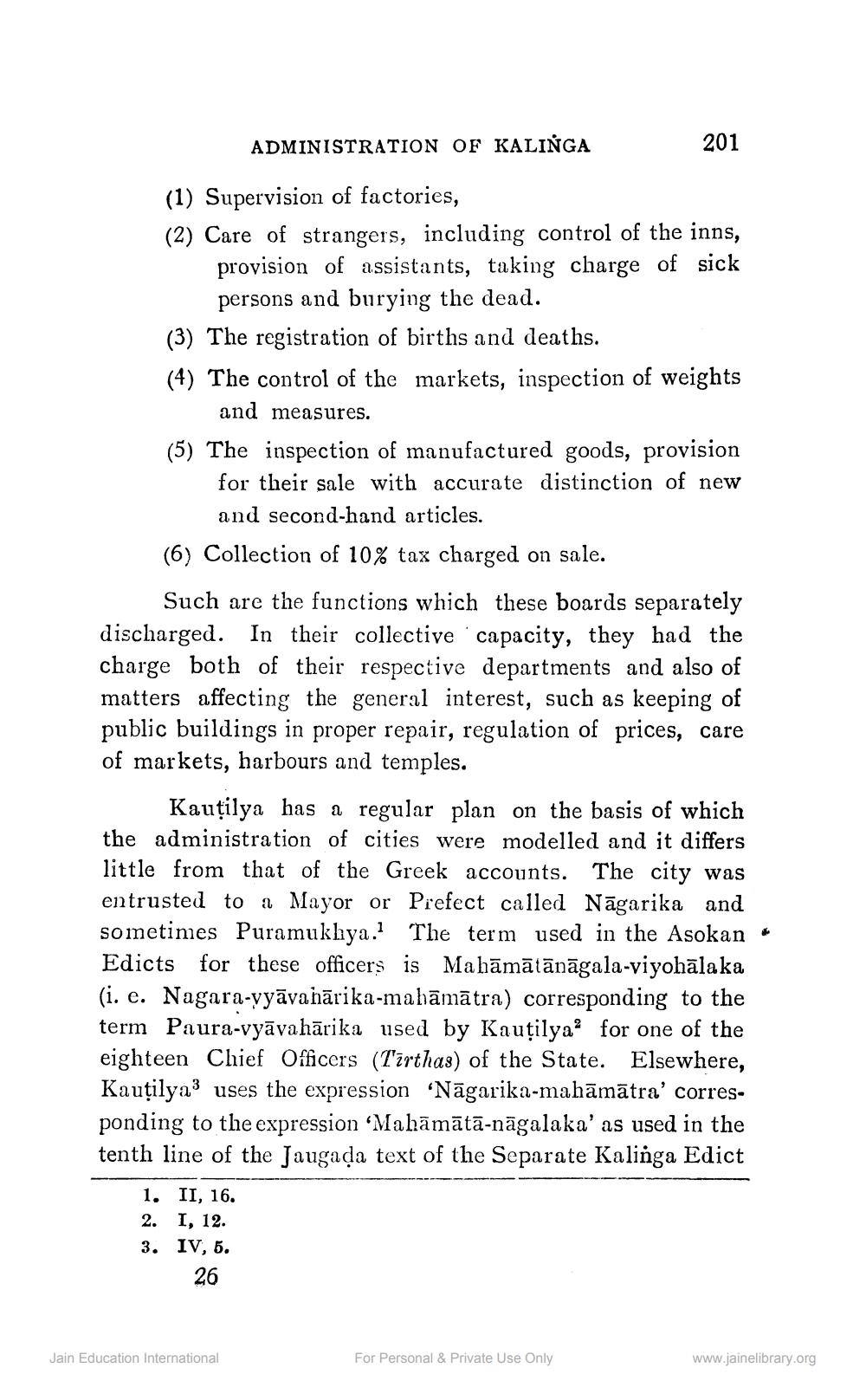________________
ADMINISTRATION OF KALINGA
201
(1) Supervision of factories, (2) Care of strangers, including control of the inns,
provision of assistants, taking charge of sick
persons and burying the dead. (3) The registration of births and deaths. (4) The control of the markets, inspection of weights
and measures. (5) The inspection of manufactured goods, provision
for their sale with accurate distinction of new
and second-hand articles. (6) Collection of 10% tax charged on sale.
Such are the functions which these boards separately discharged. In their collective capacity, they had the charge both of their respective departments and also of matters affecting the general interest, such as keeping of public buildings in proper repair, regulation of prices, care of markets, harbours and temples.
Kautilya has a regular plan on the basis of which the administration of cities were modelled and it differs little from that of the Greek accounts. The city was entrusted to a Mayor or Prefect called Nāgarika and sometimes Puramukhya. The term used in the Asokan Edicts for these officers is Mahāmātānāgala-viyohālaka (i. e. Nagara-vyāvanārika-mahāmātra) corresponding to the term Paura-vyāvahārika used by Kautilya’ for one of the eighteen Chief Officers (Tirthas) of the State. Elsewhere, Kautilya; uses the expression "Nāgarika-mahāmātra' corresponding to the expression ‘Mahāmātā-nāgalaka' as used in the tenth line of the Jaugada text of the Separate Kalinga Edict
1. 2. 3.
II, 16. I, 12. IV, 5.
26
Jain Education International
For Personal & Private Use Only
www.jainelibrary.org




